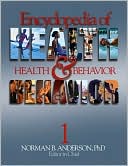Category Books
- Fiction Books & Literature
- Graphic Novels
- Horror
- Mystery & Crime
- Poetry
- Romance Books
- Science Fiction & Fantasy
- Thrillers
- Westerns
- Ages 0-2
- Ages 3-5
- Ages 6-8
- Ages 9-12
- Teens
- Children's Books
- African Americans
- Antiques & Collectibles
- Art, Architecture & Photography
- Bibles & Bible Studies
- Biography
- Business Books
- Christianity
- Computer Books & Technology Books
- Cookbooks, Food & Wine
- Crafts & Hobbies Books
- Education & Teaching
- Engineering
- Entertainment
- Foreign Languages
- Game Books
- Gay & Lesbian
- Health Books, Diet & Fitness Books
- History
- Home & Garden
- Humor Books
- Judaism & Judaica
- Law
- Medical Books
- New Age & Spirituality
- Nonfiction
- Parenting & Family
- Pets
- Philosophy
- Political Books & Current Events Books
- Psychology & Psychotherapy
- Reference
- Religion Books
- Science & Nature
- Self Improvement
- Sex & Relationships
- Social Sciences
- Sports & Adventure
- Study Guides & Test Prep
- Travel
- True Crime
- Weddings
- Women's Studies
Encyclopedia of Health and Behavior »

Authors: Norman B. Anderson
ISBN-13: 9780761923602, ISBN-10: 0761923608
Format: Hardcover
Publisher: SAGE Publications
Date Published: January 2004
Edition: (Non-applicable)
Author Biography: Norman B. Anderson
Norman B. Anderson, Ph.D., is currently Chief Executive Officer of the American Psychological Association. Trained as a practitioner and as a scientist, Dr. Anderson was Professor of Health and Social Behavior at the Harvard University School of Public Health before assuming his current position with the APA. Prior to his Harvard appointment, Anderson was the founding director of the Office of Behavioral and Social Sciences Research and an Associate Director at the National Institutes of Health. During Dr. Anderson's tenure from 1995 to 2000, OBSSR grew from a $2 million program to a $19 million program and organized the funding of more than $90 million in health research initiatives, including studies on cancer, heart disease, mental health, and diabetes. Dr. Anderson's research interests lie at the intersection of health and behavior and health and race. At Duke University, where he was an associate professor in the departments of Psychiatry and Psychology from 1985 to 1995, he conducted research studies on the role of stress in the development of hypertension in African Americans and directed the NIH-funded Exploratory Center for Research on Health Promotion in Older Minorities. As noted by APA President Dr. Philip G. Zimbardo upon Norman Anderson's appointment as CEO of APA, "His greatest strengths are his renaissance qualities as an educator-scientist with clinical credentials and a public interest orientation." Anderson is a past-president of the Society of Behavioral Medicine, the President of the Board of Directors of the Starbright Foundation and a member of the National Advisory Council of the National Institute of Drug Abuse at NIH. He is a graduate of the North CarolinaCentral University in Durham, NC, and earned master's and doctoral degrees in clinical psychology from the University of North Carolina at Greensboro. He received additional clinical and research training at the Schools of Medicine at Brown and Duke Universities.
Book Synopsis
Anderson (American Psychological Association; he was long affiliated with the Harvard U. School of Public Health), along with six associate editors, has edited a notable new resource on the topic of health and behavior. Topics of the alphabetically arranged entries were chosen for their relevance to theories and methods, biopsychosocial interactions and basic behavioral and social processes, epidemiology of risk and protective factors, health promotion and disease prevention, treatment and rehabilitation, and policy and organizational issues. (A reader's guide indexes the entries according to these themes.) A random sample of individual topics: ecological momentary assessment, effect modification, erectile dysfunction, peptic ulcers and stress, social marketing, theory of reasoned action, asthma and stress, the Framingham Heart Study, behavioral risk factor surveillance system, self-reported health, and eating disorders. Each entry includes a basic definition followed by a detailed description, a summary, a thorough list of cross-references, and a list for further reading. Both volumes contain appendices that feature an annotated list of online resources and health and behavior organizations and a 67-page bibliography. Volume 2 contains both a subject and an author index. The signed entries are authored by specialists who practice and carry out research mainly in the US. Annotation ©2004 Book News, Inc., Portland, OR
Library Journal
Since the 1980s, health and behavior research has focused on the interaction of "behavioral, psychological, emotional, social, cultural, and biological factors with physical outcomes." Current reference and consumer health books (e.g., Encyclopedia of Public Health, Gale Encyclopedia of Alternative Medicine) focus on only some of the above. Anderson (Emotional Longevity) has compiled about 200 articles that introduce American biobehavioral medicine, policies, and practice largely through individual scientific reviews. The result is a collection of "snapshots" of current biomedical thought in behavioral medicine. Arranged alphabetically by topic, the articles are also categorized by broad subjects, listed in a reader's guide. A third of them focus on specific risk and protection factors (e.g., asthma, cancer, happiness). Others cover basic process, theory and methods (e.g., health beliefs and self-efficacy), assessment and treatment (e.g., behavior analysis, health care costs), biopsychosocial interactions (e.g., anger measurement and exhaustion), and health promotion/disease prevention (e.g., complementary medicine and violence prevention). Most essays include research summaries, hypotheses (often conflicting), suggestions for further study, and reading lists. The 280 authors are listed with affiliations but not credentials. Bottom Line Although entries on risk behavior, individual development, environmentally induced gene expression, and general research methodologies are lacking, this is otherwise a comprehensive treatment of the subject. Recommended for medium to large academic and medical libraries and large public libraries.-Janice Flahiff, Medical Coll. Lib. of Ohio, Toledo Copyright 2004 Reed Business Information.
Table of Contents
Subjects

